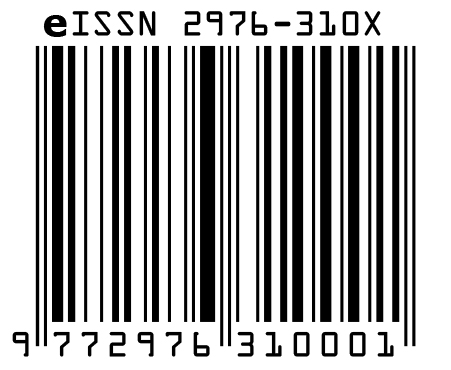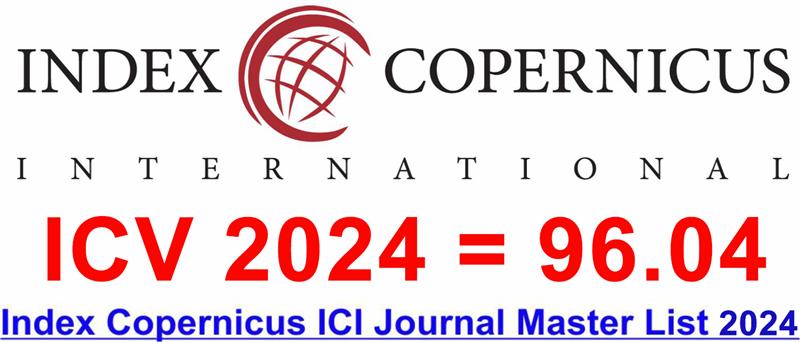Unveiling the Interplay of Depression, Antidepressants, and Cognitive Patterns: A Review of Silent Schemas in Mental Health Struggles
DOI:
https://doi.org/10.60072/ijeissah.2024.v2i02.006Abstract
This review examines the complex relationship between depression, medication, and cognitive processes, revealing implicit cognitive frameworks that affect depression. It examines how automatic thinking and cognitive schemas affect depression-related emotions and behaviors using the Dysfunctional Attitude Scale. We examine how antidepressants affect cognition and emotion, including automatic thinking, cognitive schemas, and emotional well-being. It stresses evidence-based depression treatment and the placebo effect. The study compares cognitive therapy's long-term benefits on patients' pessimism, self-view, and mood versus medication's, focusing on cognitive schema modification. The study examines pharmaceutical users' cognitive reactivity and relapse triggers using mood induction to better understand depression relapse vulnerability. Neuroimaging is also used to examine metabolic activity and brain areas after cognitive treatment and medication to determine how each treatment affects memory consolidation and cognitive functioning. This thorough study explains the complicated interaction between depression, pharmacological therapy, and cognitive processes, enhancing depression understanding and empirically supported mental health approaches.
Keywords:
Dysfunctional Attitude Scale (DAS), Cognitive Schemas, Depression, Automatic Thought Questionnaire (ATQ)References
Beadle, E. J., Ownsworth, T., Fleming, J., & Shum, D. H. (2018). Personality characteristics and cognitive appraisals associated with self-discrepancy after severe traumatic brain injury. Neuropsychological Rehabilitation, 30(3), 393-411. https://doi.org/10.1080/09602011.2018.1469416
Boschloo, L., Bekhuis, E., Weitz, E. S., Reijnders, M., DeRubeis, R. J., Dimidjian, S., ... & Cuijpers, P. (2019). The symptom‐specific efficacy of antidepressant medication vs. cognitive behavioral therapy in the treatment of depression: Results from an individual patient data meta‐analysis. World Psychiatry, 18(2), 183-191. https://doi.org/10.1002/wps.20630
Bredicean, A. C., Crăiniceanu, Z., Oprean, C., Riviș, I. A., Papavă, I., Secoșan, I., ... & Grujic, D. (2020). The influence of cognitive schemas on the mixed anxiety-depressive symptoms of breast cancer patients. BMC Women's Health, 20, 1-10. https://doi.org/10.1186/s12905-020-00898-7
Brown, G. P., Delgadillo, J., & Golino, H. (2023). Distinguishing the Dimensions of the Original Dysfunctional Attitude Scale in an Archival Clinical Sample. Cognitive Therapy and Research, 47(1), 69-83. https://doi.org/10.1007/s10608-022-10333-w
Calvete, E., Fernández-Gonzalez, L., Orue, I., Echezarraga, A., Royuela-Colomer, E., Cortazar, N., ... & Yeager, D. S. (2019). The effect of an intervention teaching adolescents that people can change on depressive symptoms, cognitive schemas, and hypothalamic-pituitary-adrenal axis hormones. Journal of Abnormal Child Psychology, 47, 1533-1546. https://doi.org/10.1007/s10802-019-00538-1
Carey, T. L. (2019). Use of antidepressants in patients with co-occurring depression and substance use disorders. Antidepressants: From Biogenic Amines to New Mechanisms of Action, 359-370. https://doi.org/10.1007/164_2018_162
Chin Fatt, C. R., Jha, M. K., Cooper, C. M., Fonzo, G., South, C., Grannemann, B., ... & Trivedi, M. H. (2020). Effect of intrinsic patterns of functional brain connectivity in moderating antidepressant treatment response in major depression. American Journal of Psychiatry, 177(2), 143-154. https://doi.org/10.1176/appi.ajp.2019.18070870
Demir, S., & Ercan, F. (2022). The effectiveness of cognitive behavioral therapy‐based group counseling on depressive symptomatology, anxiety levels, automatic thoughts, and coping ways Turkish nursing students: A randomized controlled trial. Perspectives in Psychiatric Care, 58(4), 2394-2406. https://doi.org/10.1111/ppc.13073
Douglas, K. M., Gallagher, P., Robinson, L. J., Carter, J. D., McIntosh, V. V., Frampton, C. M., ... & Porter, R. J. (2018). Prevalence of cognitive impairment in major depression and bipolar disorder. Bipolar disorders, 20(3), 260-274. https://doi.org/10.1111/bdi.12602
Etxeberria, I., Urdaneta, E., & Galdona, N. (2019). Factors associated with health-related quality of life (HRQoL): differential patterns depending on age. Quality of Life Research, 28, 2221-2231. https://doi.org/10.1007/s11136-019-02182-0
Heifets, B. D., & Malenka, R. C. (2019). Disruptive psychopharmacology. JAMA psychiatry, 76(8), 775-776. https://doi.org/10.1001/jamapsychiatry.2019.1145
Ho, C. S., Lim, L. J., Lim, A. Q., Chan, N. H., Tan, R. S., Lee, S. H., & Ho, R. C. (2020). Diagnostic and predictive applications of functional near-infrared spectroscopy for major depressive disorder: a systematic review. Frontiers in psychiatry, 11, 378. https://doi.org/10.3389/fpsyt.2020.00378
Homme, G. A., & Shults, F. L. (2020). The shaping of the self: Patterns and pathways in Bowlby, Kohut, and Bowen. Australian and New Zealand Journal of Family Therapy, 41(4), 367-380. https://doi.org/10.1002/anzf.1428
Hu, M. X., Milaneschi, Y., Lamers, F., Nolte, I. M., Snieder, H., Dolan, C. V., ... & de Geus, E. J. (2019). The association of depression and anxiety with cardiac autonomic activity: The role of confounding effects of antidepressants. Depression and anxiety, 36(12), 1163-1172. https://doi.org/10.1002/da.22966
Jalenques, I., Rachez, C., Jalenques, U. T., Nechifor, S. A., Morel, L., Blanchard, F., ... & French DAS/PDAS group. (2021). Cross-cultural evaluation of the French version of the Delusion Assessment Scale (DAS) and Psychotic Depression Assessment Scale (PDAS). Plos one, 16(4), e0250492. https://doi.org/10.1371/journal.pone.0250492
Kriesche, D., Woll, C. F., Tschentscher, N., Engel, R. R., & Karch, S. (2023). Neurocognitive deficits in depression: A systematic review of cognitive impairment in the acute and remitted state. European Archives of Psychiatry and Clinical Neuroscience, 273(5), 1105-1128. https://doi.org/10.1007/s00406-022-01479-5
Kürümlüoğlugil, R., & Tanrıverdi, D. (2022). The effects of the psychoeducation on cognitive distortions, negative automatic thoughts and dysfunctional attitudes of patients diagnosed with depression. Psychology, Health & Medicine, 27(10), 2085-2095. https://doi.org/10.1080/13548506.2021.1944654
Leavitt, V. M., Brandstadter, R., Fabian, M., Katz Sand, I., Klineova, S., Krieger, S., ... & Sumowski, J. F. (2020). Dissociable cognitive patterns related to depression and anxiety in multiple sclerosis. Multiple Sclerosis Journal, 26(10), 1247-1255. https://doi.org/10.1177/1352458519860319
Price, R. B., & Duman, R. (2020). Neuroplasticity in cognitive and psychological mechanisms of depression: an integrative model. Molecular Psychiatry, 25(3), 530-543. https://doi.org/10.1038/s41380-019-0615-x
Qin, X., Sun, J., Wang, M., Lu, X., Dong, Q., Zhang, L., ... & Li, L. (2020). Gender differences in dysfunctional attitudes in major depressive disorder. Frontiers in Psychiatry, 11, 86. https://doi.org/10.3389/fpsyt.2020.00086
Read, J., & Moncrieff, J. (2022). Depression: Why drugs and electricity are not the answer. Psychological Medicine, 52(8), 1401-1410. https://doi.org/10.1017/S0033291721005031
Ruiz, F. J., Segura-Vargas, M. A., Odriozola-González, P., & Suárez-Falcón, J. C. (2020). Psychometric properties of the Automatic Thoughts Questionnaire-8 in two Spanish nonclinical samples. PeerJ, 8, e9747. https://doi.org/10.7717/peerj.9747
Schachter, E. P. (2018). Intergenerational, unconscious, and embodied: Three underdeveloped aspects of Erikson’s theory of identity. Identity, 18(4), 315-324. https://doi.org/10.1080/15283488.2018.1523731
Sedikides, C. (2021). Self-construction, self-protection, and self-enhancement: A homeostatic model of identity protection. Psychological Inquiry, 32(4), 197-221. https://doi.org/10.1080/1047840X.2021.2004812
Sekowski, M. (2022). Attitude toward death from the perspective of Erik Erikson’s theory of psychosocial ego development: An unused potential. OMEGA-Journal of Death and Dying, 84(3), 935-957. https://doi.org/10.1177/0030222820921604
Tao, J., Sarkar, D., Kale, S., Singh, P. K., & Kapadia, R. (2020). Engineering complex synaptic behaviors in a single device: Emulating consolidation of short-term memory to long-term memory in artificial synapses via dielectric band engineering. Nano Letters, 20(10), 7793-7801. https://doi.org/10.1021/acs.nanolett.0c03548
Tariq, A., Reid, C., & Chan, S. W. (2021). A meta-analysis of the relationship between early maladaptive schemas and depression in adolescence and young adulthood. Psychological Medicine, 51(8), 1233-1248. https://doi.org/10.1017/S0033291721001458
Thompson, R. A. (2021). Attachment networks and the future of attachment theory. New Directions for Child and Adolescent Development, 2021(180), 149-156. https://doi.org/10.1002/cad.20455
Törnblom, H., & Drossman, D. A. (2021). Psychopharmacologic therapies for irritable bowel syndrome. Gastroenterology Clinics, 50(3), 655-669. https://doi.org/10.1016/j.gtc.2021.04.005
Van Tongeren, D. R., DeWall, C. N., Chen, Z., Sibley, C. G., & Bulbulia, J. (2021). Religious residue: Cross-cultural evidence that religious psychology and behavior persist following deidentification. Journal of Personality and Social Psychology, 120(2), 484–503. https://doi.org/10.1037/pspp0000288
Wilde, J. L., & Dozois, D. J. (2019). A dyadic partner-schema model of relationship distress and depression: Conceptual integration of interpersonal theory and cognitive-behavioral models. Clinical psychology review, 70, 13-25. https://doi.org/10.1016/j.cpr.2019.03.003
Yapan, S., Türkçapar, M. H., & Boysan, M. (2022). Rumination, automatic thoughts, dysfunctional attitudes, and thought suppression as transdiagnostic factors in depression and anxiety. Current Psychology, 41(9), 5896-5912. https://doi.org/10.1007/s12144-020-01086-4
























